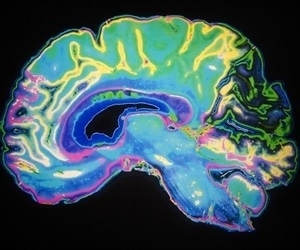| |  A Cleveland Clinic genetic analysis has found that obesity itself, not just the adverse health effects associated with it, significantly increases the risk of Type 2 diabetes and coronary artery disease. The paper was published today in the Journal of the American Medical Association Network Open. A Cleveland Clinic genetic analysis has found that obesity itself, not just the adverse health effects associated with it, significantly increases the risk of Type 2 diabetes and coronary artery disease. The paper was published today in the Journal of the American Medical Association Network Open. | |
|
| | _d2c3d4d55fbf40688068be079265900e-300x250.jpg) How the autoimmune disease type 1 diabetes is treated also depends on where the patients live in Germany. How the autoimmune disease type 1 diabetes is treated also depends on where the patients live in Germany. | |
|
| |  Research shows that losing weight can help prevent or delay the onset of diabetes. While best practice for weight loss often includes decreasing or eliminating calories from alcohol, few studies examine whether people who undergo weight loss treatment report changes in alcohol intake and whether alcohol influences their weight loss. Research shows that losing weight can help prevent or delay the onset of diabetes. While best practice for weight loss often includes decreasing or eliminating calories from alcohol, few studies examine whether people who undergo weight loss treatment report changes in alcohol intake and whether alcohol influences their weight loss. | |
|
| |  General Practitioners in England would soon prescribe a very low calorie diet (VLCD) for patients with type 2 diabetes in England as part of an attempt to reverse the increasingly growing numbers of the disease. General Practitioners in England would soon prescribe a very low calorie diet (VLCD) for patients with type 2 diabetes in England as part of an attempt to reverse the increasingly growing numbers of the disease. | |
|
| |  Aerobic exercise may reduce the risk of diabetes-related kidney disease in some people, according to a new study. The findings are published ahead of print in the American Journal of Physiology--Renal Physiology and was chosen as an APS select article for December. Aerobic exercise may reduce the risk of diabetes-related kidney disease in some people, according to a new study. The findings are published ahead of print in the American Journal of Physiology--Renal Physiology and was chosen as an APS select article for December. | |
|
| |  Diabetes is a disease in which blood sugar levels are high over a prolonged period (hyperglycemia). In the case of type 2 diabetes, this phenomenon which is caused by a disruption of the glucose metabolism develops progressively and insidiously. Diabetes is a disease in which blood sugar levels are high over a prolonged period (hyperglycemia). In the case of type 2 diabetes, this phenomenon which is caused by a disruption of the glucose metabolism develops progressively and insidiously. | |
|
| |  Researchers have conducted a study showing that a specific subset of immune B cells delays the onset of type 1 diabetes in mice. Researchers have conducted a study showing that a specific subset of immune B cells delays the onset of type 1 diabetes in mice. | |
|
| |  Scientists have discovered the signals that determine the fate of immature cells in the pancreas. The research shows that they are very mobile and that their destiny is strongly influenced by their immediate environment. Scientists have discovered the signals that determine the fate of immature cells in the pancreas. The research shows that they are very mobile and that their destiny is strongly influenced by their immediate environment. | |
|
| |  Whether gut or brain hormones are more important for the regulation of appetite and metabolism is not clearly defined. Imbalances in the control of appetite and metabolism can lead to obesity and diabetes, which have a negative impact on people's health and healthcare costs. Whether gut or brain hormones are more important for the regulation of appetite and metabolism is not clearly defined. Imbalances in the control of appetite and metabolism can lead to obesity and diabetes, which have a negative impact on people's health and healthcare costs. | |
|
| |  Scientists from the University of Bristol have designed a new synthetic glucose binding molecule platform that brings us one step closer to the development of the world's first glucose-responsive insulin which, say researchers, will transform the treatment of diabetes. Scientists from the University of Bristol have designed a new synthetic glucose binding molecule platform that brings us one step closer to the development of the world's first glucose-responsive insulin which, say researchers, will transform the treatment of diabetes. | |